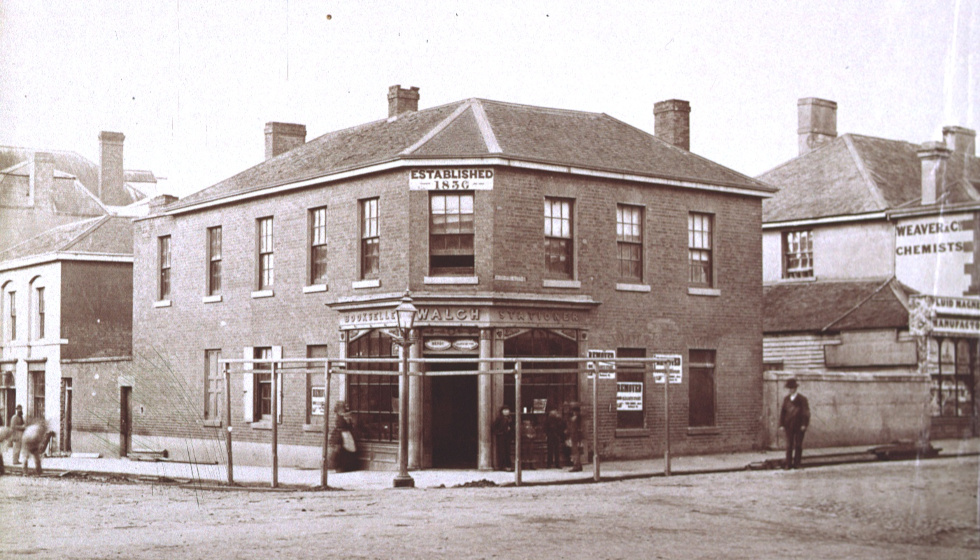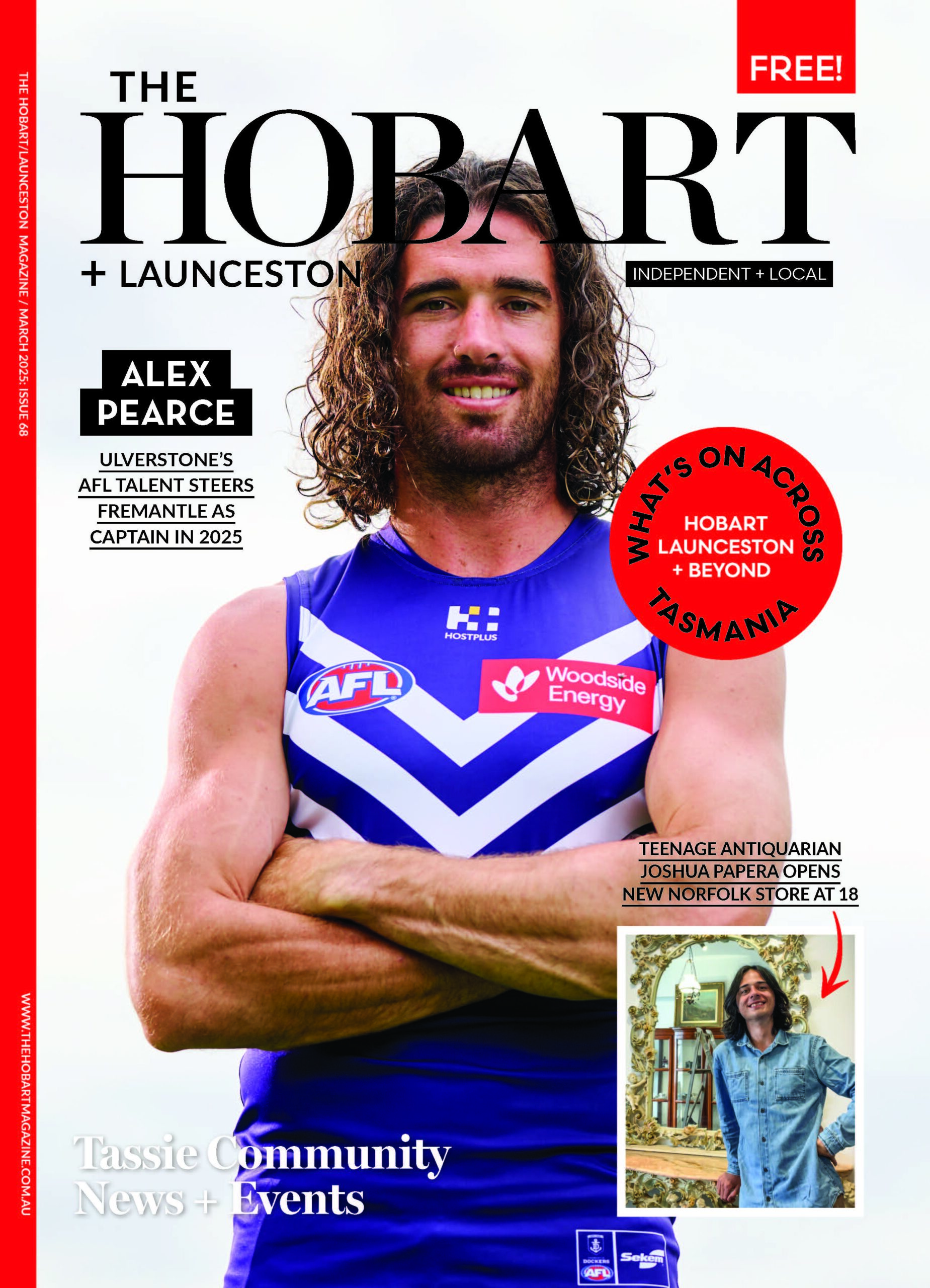A Whale of A Time…
by Amanda Double

In late 2020 during the first year of the Covid-19 pandemic, when we were all living and working from home, going slightly crazy isolating from each other and the world, something exciting happened: a friend alerted me to a Tasmanian online auction that was about to take place.
I’d never been to an auction before, either online or in person, but this was too good to miss – an historic collection of items from the firm of J. Walch & Sons Pty Ltd, one of Tasmania’s earliest stationers/ booksellers/ printers/ publishers, dating back to the 1840s. All sorts of memorabilia was to be sold, including printing and paper presses, bookbinding equipment, printers’ trays, stands, tools, wooden and metal type sets, blocks and stamps.
The firm of J. Walch & Sons began in 1846 when Major James William Henry Walch bought a bookselling and stationery business from Samuel Tegg, who had established it in Hobart in 1836. James Walch ran it with his eldest son, also named James, and later another son Charles also joined them. Among much else, they were responsible for producing popular reference works such as Walch’s Tasmanian Almanack and Walch’s Literary Intelligencer. The business continued to prosper with various offshoots, before an eventual decline in the latter part of the 20th century: the printing department merged with the Mercury Press to form Mercury Walch, the stationery business was sold, and the rest apparently went into voluntary liquidation in the early 2000s.

I was keen to rescue something as a memento. After registering with the northern Tasmanian auction house, I received a bidding number and password with which to log in. I had already sussed out several items of interest from the pre-loaded catalogue – but gosh, they went fast on the day. Lot after lot after lot! As a naive new-chum I had placed a couple of early offers, but was quickly outbidden. And then discovered it was just as problematic waiting till the last minute, as you have to be very quick on the keyboard. By clicking on “watch” and “show watch list” just for the lots you are especially keen on, you have a better chance of speeding up the download time and trying to make the final successful bid. This also ratchets the tension up to an unbearable level and you may find yourself getting altogether carried away, just for a moment morphing into a covetous, competitive harridan shouting at your computer and prepared to offer higher and higher amounts for something that you simply MUST have…or was that just me?!
Actually, no – apparently this sort of behaviour is not uncommon at auctions everywhere (well, perhaps not so much the shouting bit; I blame pandemic-induced online alienation for that). American billionaire Charlie Munger once observed: “…the open-outcry auction is just made to turn the brain into mush: you’ve got social proof, the other guy is bidding, you get reciprocation tendency, you get deprival super-reaction syndrome, the thing is going away…I mean it just absolutely is designed to manipulate people into idiotic behavior.”

Happily, I calmed down and managed to bid sensibly and successfully on a couple of smaller, less-expensive items that interested me – including this cover printing plate (metal on a wooden block) for J.E. Philp’s book, Whaling Ways of Hobart Town, a history of Hobart’s connection with the whaling industry, which J. Walch & Sons published in 1936. Naturally, then I wanted to purchase a copy of the 95-page book itself as well. Fortunately the wonderful Cracked and Spineless bookshop was able to source a copy of this for me, to “exhibit” side by side with the printing plate in pride of place on top of my favourite bookshelf, in my tiny apartment. Yes, for the privileged pandemic audience of one – but that one was very enthusiastic. And I still smile whenever I see them.

